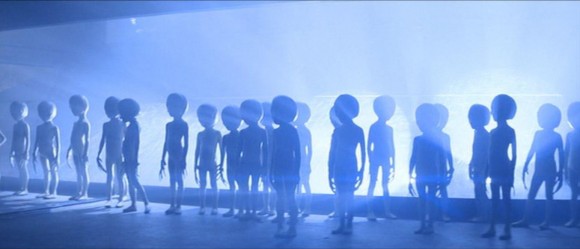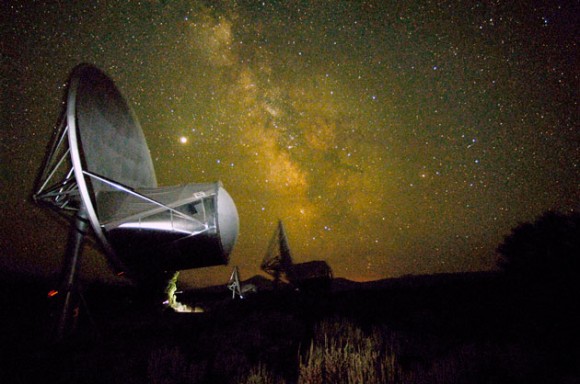TORONTO, CANADA – Should E.T. finally give Earth a ring, it’s not only important to understand what the message says but why it is being sent, a speaker at a talk about extraterrestrials urged this week. This requires understanding about alien social behavior, also known as sociology.
“We keep complaining about the fact that we know so little about extraterrestrials in general, and even though sociology is mentioned in the Drake Equation, it is generally agreed that is the most difficult aspect to address,” said Morris Jones, an Australian who describes himself as an independent space analyst.
The Drake Equation is a set of variables proposed by astronomer Frank Drake that estimates how many intelligent, communicating civilizations there are in the universe. While speaking at the International Astronautical Congress Wednesday (Oct. 1), Jones pointed out that most talk about alien communications focuses on the basics – how they transmit, and where to search, and whether we can hear them. But to fully understand the message, we have to understand how their society works.

Extraterrestrials in the 1979 movie “Close Encounters of the Third Kind.” Credit: Columbia Pictures / Alien Wiki
How a society functions is partly a function of biology, Jones argued. So if humans decided to incorporate machine intelligence in their bodies, it would be reasonable to assume that society would change because of that. “Machine society is an entirely different sociology, and that we cannot predict,” Jones said. An extraterrestrial civilization could use machines, drugs, genetic engineering or surgery to alter their basic nature (something that is used also with humans.)
Class systems could also be in place that are similar to the animal kingdom. Herd and hive sociology covers how animals behave. Pigeons, for example, flock together for mutual protection. In the insect world, beings such as ants tend to be born in specific physiological roles that prepare them for different functions — such as the queen ant that is the mother of other ants in the colony.
These are societies that we could predict, perhaps, but more intriguing are those that are difficult to extrapolate from human experience or observation. Jones is particularly interested in cryptosociology. That’s the concept that because we can’t predict yet how alien civilizations will behave, we can speculate what they are capable of.

SETI’s Allen Telescope Array monitors the stars for signs of intelligent life (SETI.org)
Here, Jones urges using systems theories that would make each system consistent with itself. On Earth, if a system contradicts itself it disappears — such as with ancient civilizations that failed.
While he didn’t detail what these systems could be — predicting them would be difficult, he said — Jones argued it would be tough to really know the true sociology of extraterrestrial civilizations when we not only are ignorant about their biology, but aspects of our own sociology.
Source
No comments:
Post a Comment
Note: Only a member of this blog may post a comment.